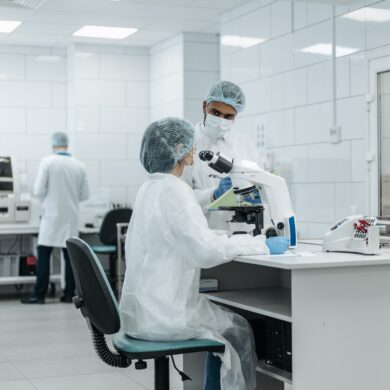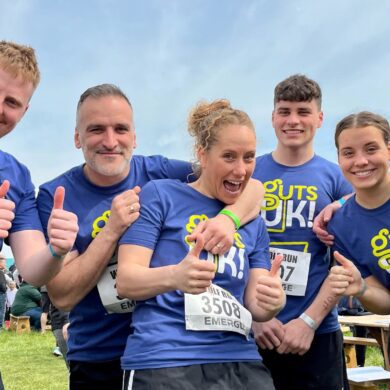Advait Upadhyaya
Healthcare costs and services for patients with multiple gut conditions.
Dr Falk/Guts UK Medical Student Prize Winner
“The Development of unified Hypermobile Ehlers-Danlos Syndrome/
Hypermobile Spectrum service for patients with concomitant Functional
Dyspepsia and Irritable Bowel Syndrome .”

“98% of Hypermobile Ehlers-Danlos Syndrome/Hypermobile Spectrum Disorder (hEDS/HSD) patients have a Disorder of Gut-Brain Interaction (DGBI).
Yet despite this, there is no specific service for these patients in the UK. I wanted to examine the current situation for these patients, with the aim of suggesting methods of providing a multi-disciplinary, unified services which would not only improve patient outcomes but also reduce healthcare costs; a point particularly important given the current fiscal climate.”
660 hEDS/HSD patients with concomitant Functional Dyspepsia (FD) and/or Irritable Bowel Syndrome (IBS) were included in the study. The study was the largest of its kind at the time, reported Mr Upadhyaya’s Project Supervisor Dr Asma Fikree, Gastroenterology Consultant at the Royal London Hospital in London.
In his research, Mr Upadhyaya found that patients with FD were significantly more likely than patients without FD to:
- Have an outpatient consultation
- Have an inpatient admission
- And/or use artificial nutrition
As a result, Mr Upadhyaya explains how those patients were more likely to have greater healthcare costs. Also, that polypharmacy (use of multiple medicines) was highly prevalent with 73.2% of participants being on at least 5 medications.
Why did you choose this project?
“I have my heart set on a career in gastroenterology, especially neurogastroenterology, due to the wide scope for research and future treatment options this brings.
The ten largest healthcare costs (£20,000 – £98,000 over 6 months) were in patients with FD±IBS. The majority of total healthcare costs(31%) were attributable to outpatient consultations, with rheumatology and (neuro)gastroenterology services being used the most, and allied services such as physiotherapy and psychology being used the least (despite the significant benefits of using these services).

Following the data analysis, we suggest a trial of an MDT service in a tertiary hospital, comprising of Neurogastroenterologists, Rheumatologists and allied healthcare professionals.
This pilot study will involve a small group of patients with a baseline review of symptoms and medications with a mutually agreed management place put in place, followed up over a 6-month period and a final review. An audit team would then review this model and compare it to the healthcare costs seen in this study. Following these results, we could trial this approach on a larger scale.
Our long term aim is the creation of a novel and unified service which would be both cost-effective and tailored for these patients.“
I am very grateful to win this award. My tutor, Dr Asma Fikree, and I have worked very hard on this project, and it is really encouraging to see that this work is being recognised. I want to thank everyone who has supported me during this and everyone involved in organising and running this project.
- Advait Upadhyaya



